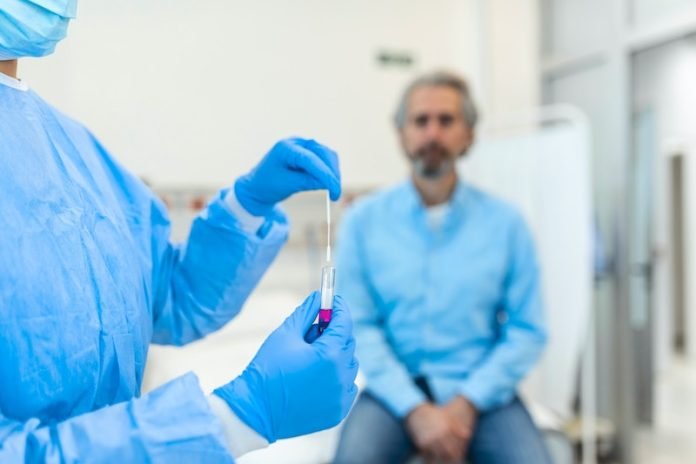
Prostate cancer can change from a common form to a very dangerous one.
Scientists at the University of Michigan Rogel Cancer Center have found out why this happens and how to possibly stop it.
Most men with prostate cancer get a treatment that reduces male hormones.
This usually helps in treating a common type of prostate cancer. But sometimes, the cancer changes.
Instead of looking like a gland, it starts looking like nerve or brain tissue. This new form is called neuroendocrine prostate cancer and it’s very bad news. It’s hard to treat and can grow fast.
Joshi Alumkal, a top doctor at Rogel, said that sometimes newer treatments can make the cancer become more aggressive.
He explained that in some cases, the cancer changes its identity and becomes neuroendocrine prostate cancer.
A Protein’s Role in Dangerous Cancer
Alumkal and his team have been studying a protein called LSD1 for ten years. They found out that this protein helps the common form of prostate cancer live and grow. They wondered if it did the same for the dangerous form.
To figure this out, they looked at cancer tissue from patients. They found that the dangerous cancer had more of the LSD1 protein.
When they removed this protein from cancer cells in the lab, the cells didn’t grow well. This meant that the LSD1 protein was very important for this cancer.
But there was more. They found out that LSD1 stops another protein called p53 from working. The p53 protein usually keeps cancer in check. By turning off p53, LSD1 helps the cancer grow.
A Potential Solution to Stop Cancer’s Growth
After knowing how LSD1 works, the team tested drugs that could stop it. One drug called seclidemstat was very promising.
When they gave this drug to mice with the dangerous prostate cancer, it stopped the cancer from growing. Some mice even got completely better. The drug didn’t make the mice sick, which was good news.
Alumkal said this research gives hope. The drug they tested is already being looked at for another disease.
So, it might be possible to test it for prostate cancer soon. If it works, it could help treat the dangerous form of prostate cancer.
Alumkal also thinks their findings might help treat other cancers, not just prostate cancer. This is because the p53 protein is important in many cancers.
If scientists can figure out how to make p53 work better, it could be a new way to treat many kinds of cancer.
If you care about prostate cancer, please read studies about diet that could drive growth of prostate cancer, and enlarged prostate may actually lower a man’s odds for cancer.
For more information about prostate cancer, please see recent studies about new tests for prostate cancer, colon cancer, and results showing prostate cancer drugs may help treat COVID-19.
The study was published in JCI Insight.
Follow us on Twitter for more articles about this topic.
Copyright © 2023 Knowridge Science Report. All rights reserved.



